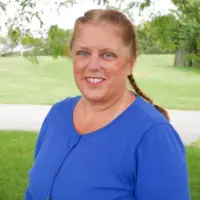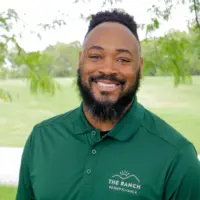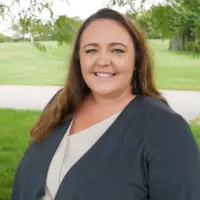I came to clarity way at the lowest point of my life, the therapist and staff supported me when I needed it the most. Crystal taught me valuable tools that I still use today! This is truly like no other facility that I have ever been at (3). I felt safe enough to finally ...
About Clarity Way – Closed
Clarity Way, located in Hanover, Pennsylvania is permanently closed. It provided services to assist adults in overcoming substance use disorders through detox programs, counseling services, and other ancillary services. What stands out most to us about Clarity Way is its location. It was located in the rolling hills of South Central Pennsylvania, a serene environment conducive to healing. Proximity to other natural landscapes and parks offered even more opportunities for outdoor activities and reflection.
Clarity Way accepted private health insurance and offered self-payment options. It had overall positive feedback with an average rating of 4.0 out of 5 stars from 43 reviews. Past patients commended the facility for its supportive staff, comprehensive therapy options, and comfortable accommodations. Some testimonials highlighted life-changing experiences and effective recovery support.
SUD Services Previously Offered in South Central Pennsylvania
Clarity Way provided medical detoxification services to help you safely and comfortably withdraw from substances. It also provided residential inpatient treatment and outpatient programs including dual diagnosis treatment for co-occurring mental health disorders.
We like the wide range of services they offered to help adults from every angle possible. To help you stay successful, they also had a relapse prevention program to ensure continuity of care after the conclusion of formal treatments.
Ancillary Services at Clarity Way
Their trauma counseling was a robust offering to assist in addressing past experiences and the effect that mental health has on choices and substance use. They offered acupuncture, yoga, and music therapy. We really like their luxury accommodations which included amenities like private rooms with housekeeping services, a gourmet kitchen, and a massage room with a salon.
Latest Reviews
Rehab Score
Gallery
Accepted Insurance
Other Forms of Payment
Private insurance refers to any kind of healthcare coverage that isn't from the state or federal government. This includes individual and family plans offered by an employer or purchased from the Insurance Marketplace. Every plan will have different requirements and out of pocket costs so be sure to get the full details before you start treatment.
Self-pay involves paying for treatment out of your own pocket. You can use savings or credit, get a personal loan, or receive help from family and friends to fund your treatment. If you don't have insurance or your insurance plan doesn't cover a specific program, self-pay can help ensure you still get the care you need.
Addiction Treatments
Levels of Care
Drug and alcohol addiction often takes a heavy toll on one's body. Over time, a physical dependence can develop, meaning the body physiologically needs the substance to function. Detox is the process of removing drugs and/or alcohol from the body, a process that can be lethal if mismanaged. Medical detox is done by licensed medical professionals who monitor vital signs and keep you safe, healthy, and as comfortable as possible as you go through detox and withdrawal.
Clarity Way provides residential addiction and mental health treatment. Clients live in home-like comfort and enjoy plenty of amenities while attending an intensive inpatient treatment program.
Completing a drug or alcohol rehab program shouldn't spell the end of substance abuse treatment. Aftercare involves making a sustainable plan for recovery, including ongoing support. This can include sober living arrangements like halfway houses, career counseling, and setting clients up with community programs like Alcoholics Anonymous (AA) or Narcotics Anonymous (NA).
Treatments
Many of those suffering from addiction also suffer from mental or emotional illnesses like bipolar disorder, depression, or anxiety disorders. Clarity Way provides psychiatric treatment to address clients mental health issues in addition to drug and alcohol rehabilitation.
Clarity Way treats clients struggling with all kinds of substance abuse such as marijuana, opioids, heroin, alcohol, cocaine, painkillers and others.
Programs
Clarity Way treats men and women struggling with addiction and co-occurring mental health disorders.
Clinical Services
Cognitive Behavioral Therapy (CBT) is a therapy modality that focuses on the relationship between one's thoughts, feelings, and behaviors. It is used to establish and allow for healthy responses to thoughts and feelings (instead of unhealthy responses, like using drugs or alcohol). CBT has been proven effective for recovering addicts of all kinds, and is used to strengthen a patient's own self-awareness and ability to self-regulate. CBT allows individuals to monitor their own emotional state, become more adept at communicating with others, and manage stress without needing to engage in substance abuse.
Creativity is inherently healing, and can help those in recovery express thoughts or feelings they might not otherwise be able to. Clarity Way offers music and art studios so clients can take part in expressive activities that help them heal in different ways.
Experiential therapy is a form of therapy in which clients are encouraged to surface and work through subconscious issues by engaging in real-time experiences. Experiential therapy departs from traditional talk therapy by involving the body, and having clients engage in activities, movements, and physical and emotional expression. This can involve role-play or using props (which can include other people). Experiential therapy can help people process trauma, memories, and emotion quickly, deeply, and in a lasting fashion, leading to substantial and impactful healing.
They offer trauma-focused therapies such as EMDR that help clients address deeply rooted issues surrounding trauma and past difficulties. EMDR, or Eye Movement Desensitization and Reprocessing, uses a stimuli such as light to act on bilateral stimulation of the eye while the client recalls and ultimately reprocesses traumatic events or emotional blocks.
Research clearly demonstrates that recovery is far more successful and sustainable when loved ones like family members participate in rehab and substance abuse treatment. Genetic factors may be at play when it comes to drug and alcohol addiction, as well as mental health issues. Family dynamics often play a critical role in addiction triggers, and if properly educated, family members can be a strong source of support when it comes to rehabilitation. Clarity Way offers family therapy and a family program
Hypnosis is the process of helping a person access their powerful subconscious mind through concentrated focus and deep relaxation. Hypnotherapy uses hypnosis as a technique to help clients make therapeutic gains in treatment. Hypnotherapy has many diverse applications including assisting with the treatment of such issues as addiction, pain management, stress, sleep problems, anxiety, depression. It also encourages positive behavior change. As clinically appropriate, clients receive hypnotherapy from a hypnotherapist certified by the National Guild of Hypnotists.
In individual therapy, clients meet one-on-one with a trained psychologist or counselor. Therapy is a pivotal part of effective substance abuse treatment, as it often covers root causes of addiction, including challenges faced by the client in their social, family, and work/school life.
Motivational interviewing meets clients where they are in the recovery process. This approach acknowledges that clients who need to make changes in their lives come into treatment at various levels of readiness to change their behavior. Some may have considered the need for change, but have not taken steps to alter behaviors that led to problems or have not yet found resolution. Components of motivational interviewing include: open-ended questions, an affirming attitude, reflective/active listening, and summarizing and reflecting back to the client what they’ve said. Therapists help clients view their life circumstances through healthier lenses and gain motivation to take the necessary steps for change. This approach is cooperative and reinforces the partnership between therapist and client.
Trauma therapy addresses traumatic incidents from a client's past that are likely affecting their present-day experience. Trauma is often one of the primary triggers and potential causes of addiction, and can stem from child sexual abuse, domestic violence, having a parent with a mental illness, losing one or both parents at a young age, teenage or adult sexual assault, or any number of other factors. The purpose of trauma therapy is to allow a patient to process trauma and move through and past it, with the help of trained and compassionate mental health professionals.
Amenities
-
Private Setting
-
Yoga Studio
-
Wifi
-
Spa
-
Private Rooms
-
Hiking
Staff & Accreditations
Staff

David Dorschu
CEO

Jill Curley
Admissions Director

Dr. Rob
Medical Director

Edward Cole
Director of Environment of Care

Meghan Cleaver
Director of Residential Services
Accreditations

The Joint Commission, formerly known as JCAHO, is a nonprofit organization that accredits rehab organizations and programs. Founded in 1951, the Joint Commision's mission is to improve the quality of patient care and demonstrating the quality of patient care.
Joint Commission Accreditation: Yes
Accreditation Number: 570115





